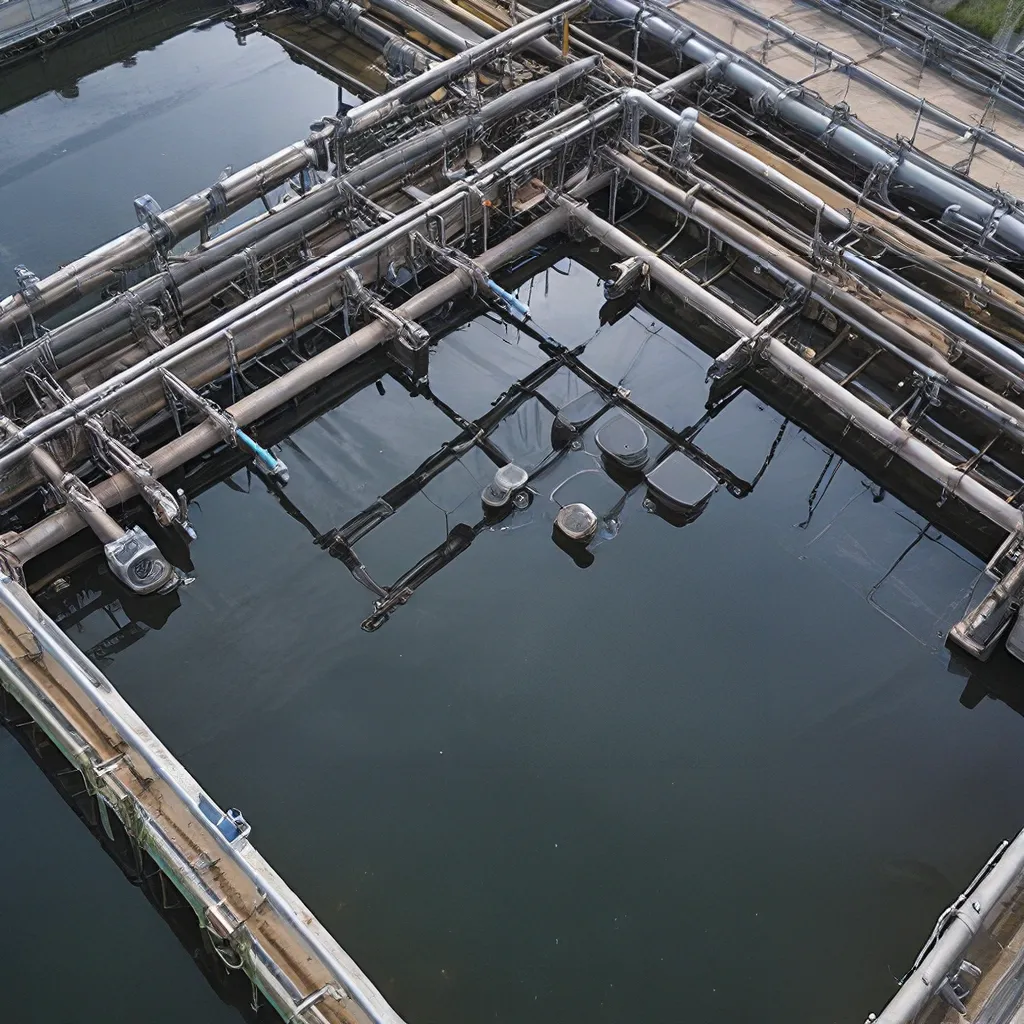
As the world becomes increasingly industrialized, the challenge of managing our wastewater has grown exponentially. The sheer volume and complexity of pollutants being dumped into our waterways can be overwhelming, but thankfully, there’s a technological hero emerging to save the day – Artificial Intelligence (AI).
In the world of wastewater treatment, AI is making waves, quite literally. By partnering with cutting-edge membrane bioreactor (MBR) systems, AI is ushering in a new era of efficiency, sustainability, and precision that’s leaving our old methods in the dust.
Unleashing the Power of Machine Learning
At the heart of this AI revolution are powerful machine learning (ML) algorithms, like Artificial Neural Networks (ANNs) and Support Vector Machines (SVMs). These models are designed to mimic the way our own brains process information, allowing them to tackle the complex data and patterns inherent in wastewater treatment.
As a recent study published in Environments explains, these ML models are proving to be game-changers for MBR systems. By monitoring and adjusting key variables in real-time, they can optimize the entire treatment process, ensuring maximum efficiency and water quality.
Predicting the Unpredictable
One of the biggest challenges in wastewater treatment is the constant threat of membrane fouling – the accumulation of particles, colloids, and organic materials within the membrane filters. This can drastically reduce the system’s filtration efficiency, leading to increased operational costs and energy consumption.
But fear not, the AI cavalry has arrived! ANNs can forecast these system changes, allowing operators to take preemptive action to maintain optimal performance. Meanwhile, SVMs excel at classifying and predicting water quality, helping to avoid fouling issues and ensuring the treated water meets stringent environmental standards.
Striking a Balance Between Sustainability and Efficiency
Wastewater treatment is a delicate balancing act, with operators constantly striving to maximize efficiency while minimizing the environmental impact. AI-powered MBR systems are proving to be the perfect solution, providing a level of precision and optimization that was previously unattainable.
By continuously monitoring variables like transmembrane pressure (TMP), flow rates, and aeration levels, these systems can make real-time adjustments to optimize energy consumption and pollutant removal. This not only leads to a more sustainable operation but also reduces operational costs, ensuring the treated water is safe for reuse or discharge.
Overcoming the Challenges of AI Integration
Of course, integrating AI into existing MBR infrastructure is not without its challenges. The need for high-quality, extensive data for model training and validation is a significant hurdle, as is the technical expertise required to manage and interpret the ML outputs.
As one recent study highlights, there’s also the logistical aspect of retrofitting older systems with new sensors and connectivity for real-time data collection. Ensuring seamless integration without disrupting current operations is a delicate balancing act.
But the wastewater treatment industry is rising to the challenge, collaborating with technology providers to develop advanced analytics and data management tools. By establishing robust data logging practices and maintaining data security and privacy, they’re paving the way for a future where AI-enhanced MBR systems are the norm.
The Regulatory Catalyst
Interestingly, environmental regulations are playing a crucial role in the adoption and development of ML-enhanced MBR technologies. As standards for effluent quality become stricter, the need for more advanced and precise treatment methods becomes increasingly pressing.
Regulations are also driving innovation in reducing energy consumption and environmental impact – areas where ML can provide significant advantages through optimized operational parameters and increased efficiency. This regulatory pressure is serving as a catalyst, pushing the industry to embrace the power of AI and reap the benefits it can provide.
The Future of AI in Wastewater Treatment
As we look to the future, the potential for AI to revolutionize MBR systems is truly exciting. Imagine self-learning algorithms that can adapt to changing wastewater characteristics in real-time, or predictive maintenance models that can prevent fouling and downtime before they even occur.
And with the integration of Internet of Things (IoT) devices, the data analysis capabilities of these systems will only continue to grow, leading to further optimizations in treatment processes and energy usage.
The future of wastewater treatment is undoubtedly AI-powered, and the team at Alpha Wastewater is at the forefront of this revolution. By embracing the power of machine learning and collaborating with industry experts, they’re ensuring that our waterways remain clean, our operations remain efficient, and our environmental impact remains minimal.
So, are you ready to dive into the future of wastewater treatment? It’s time to let AI take the reins and guide us towards a cleaner, greener, and more sustainable tomorrow. Who knows, we might even have a few laughs along the way!